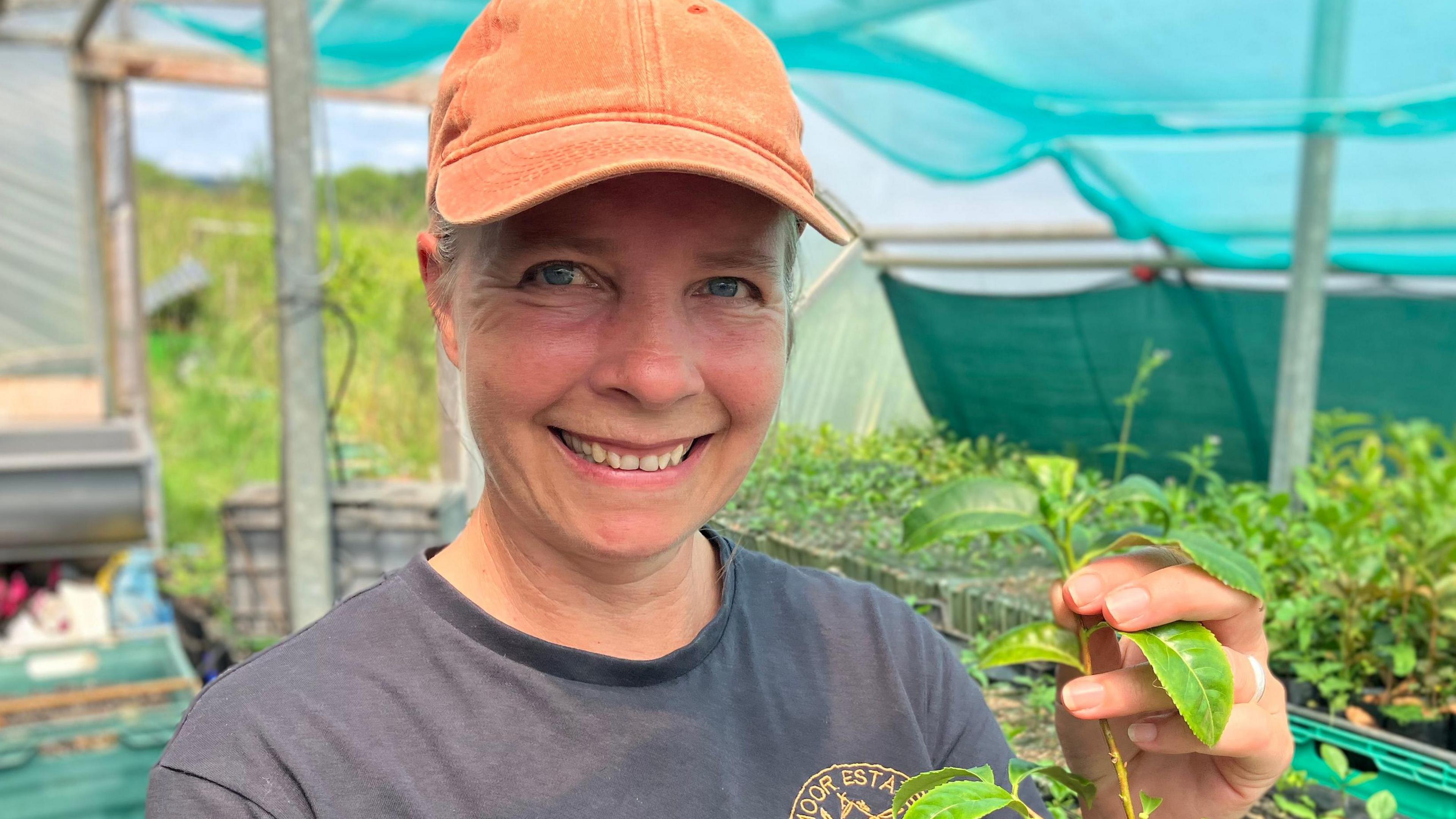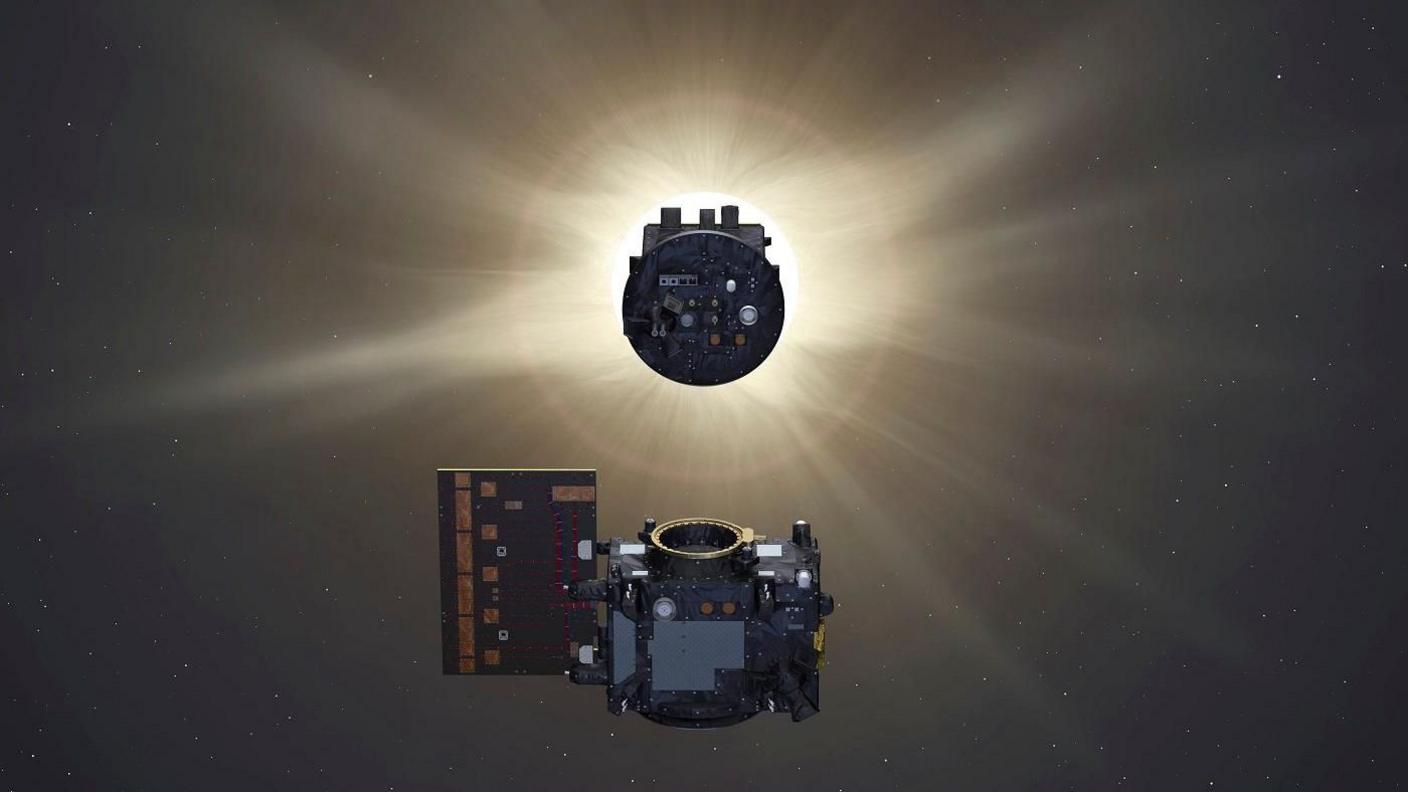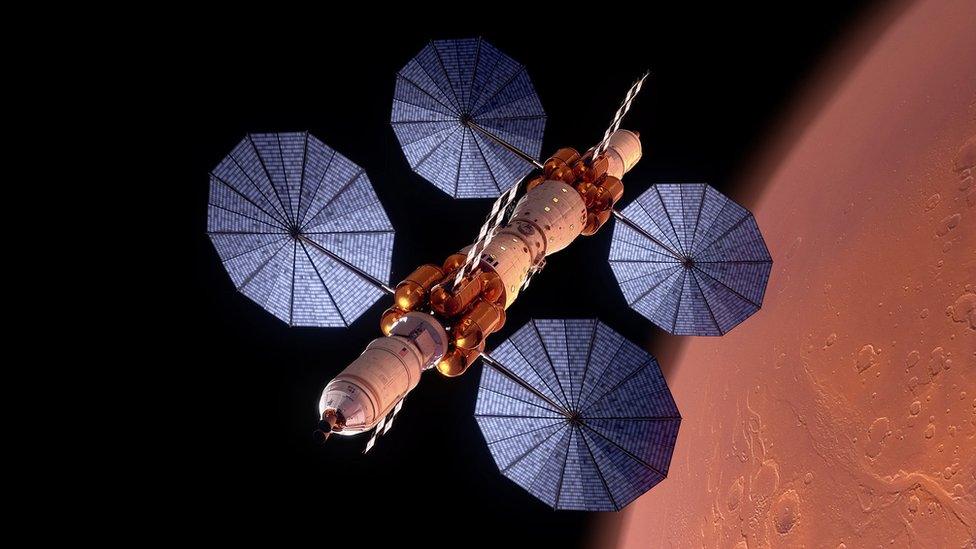Start-up in bid to prove UK leads in space tech

Based at Harwell Campus in Didcot, Magdrive was founded in 2020
- Published
A UK-built spacecraft engine that runs on metal is preparing for its first test in space, in a mission that could pave the way for longer-lasting, more flexible satellites.
The plasma thruster, developed by Oxfordshire start-up Magdrive, heats tiny bits of solid metal into a hot gas to produce powerful bursts of thrust.
In the future it could allow satellites to recycle parts of themselves, or space junk for fuel, but for now the metal is carried onboard.
The launch, scheduled from Vandenberg Air Force Base in Santa Barbara County, California, US, on Saturday at 22:00 BST, is backed by the UK and European space agencies.

An image of the Rogue thruster - a new plasma engine that uses solid metal as fuel to power spacecraft
Mark Stokes, chief executive and co-founder of Magdrive, said the mission showed what British innovation could achieve with the right support.
"We've spent four years building something that breaks the mould," he said.
"This launch isn't just about proving our tech – it's about proving the UK can lead in space."
Dr Gianluigi Baldesi, from the European Space Agency, said the quick progress from project start to launch demonstrated the "bold" innovation it aimed to encourage.
"In less than a year, we have gone from kick-off to launch," he said.
Dr Paul Bate, chief executive of the UK Space Agency, called it "a critical demonstration" of propulsion technology for thousands of future satellites.
"We're proud to support home-grown innovations that push scientific boundaries," he added.
Data from the test flight is expected in August and September.
Get in touch
Do you have a story BBC Oxfordshire should cover?
You can follow BBC Oxfordshire on Facebook, external, X (Twitter), external, or Instagram, external.
Related topics
Related links
Related stories
- Published20 June

- Published17 June

- Published25 December 2019
